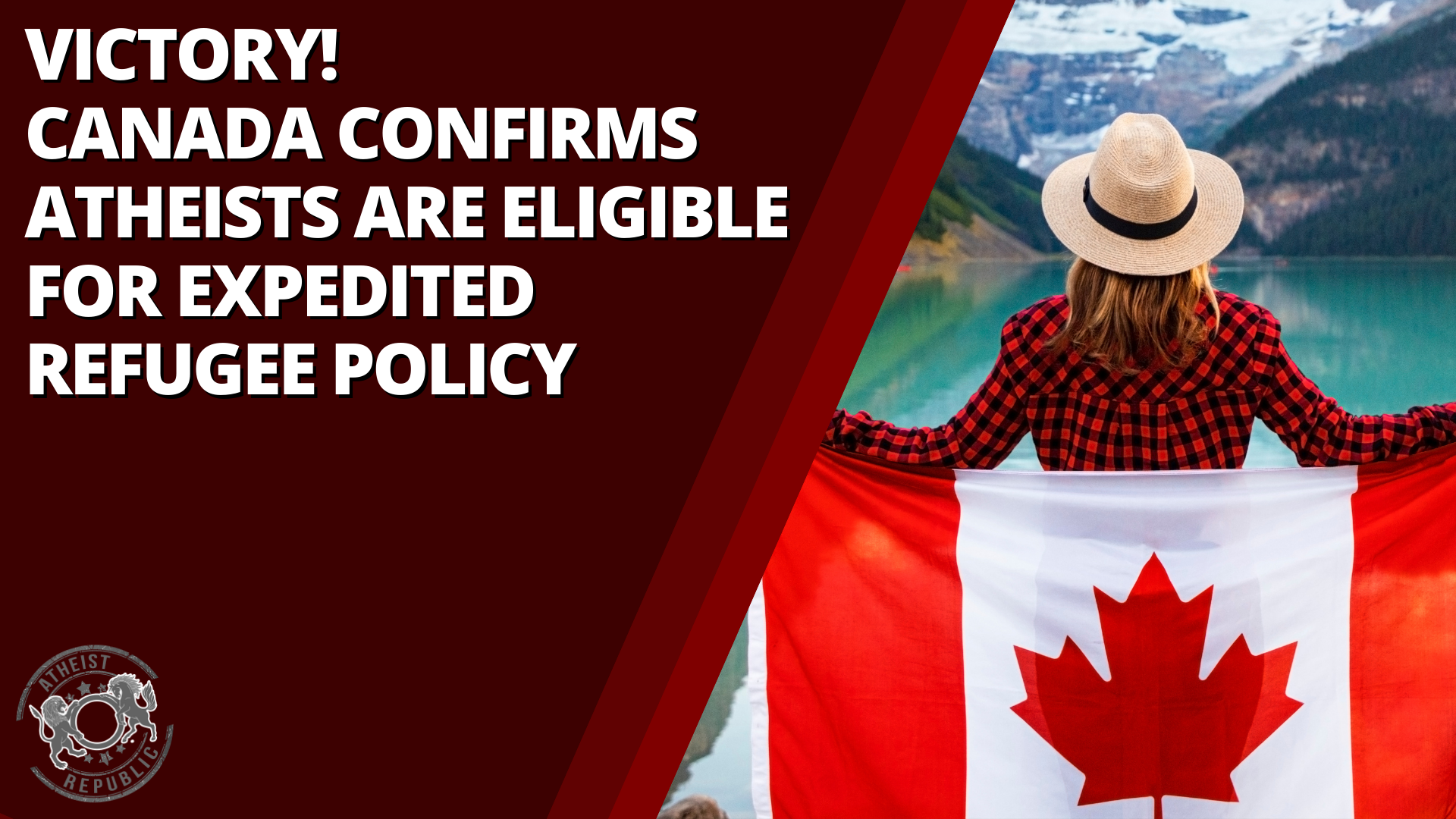
On March 24, after a successful petition campaign, Canada's Minister of Immigration, Refugees, and Citizenship confirmed that atheists and other non-religious are eligible for Less Complex Claims (LCC).
The LCC is an expedited refugee application process run by the Immigration and Refugee Board of Canada. The process is handled by the Refugee Protection Division and allows for "short-hearing and file-review processes."
Doug Thomas, a lobbyist and the president of Secular Connexion Séculière (SCS), initiated the petition. In an email to the Atheist Republic News Team, Thomas said the problems with the previous LCC policy language was first brought to their attention in September 2019.
In an interview with the Atheist Republic News Team, Robert Hamilton, President of Humanist Ottawa and Treasurer of Atheist Republic, said the LCC listed countries and the "acceptable reasons" for the refugee applicant to qualify for the special program. The acceptable reasons included religion and religious persecution.
"The policy did not specify that atheists and nonbelievers are part of this group," Hamilton said. "We need to make it clear that nonbelievers are explicitly eligible even though they are not a member of an identified religious group," he added.
Thomas and his team reached out to Marco Mendicino, the Minister of Immigration, Refugees, and Citizenship, for clarification, but Mendicino did not respond. A website with details on LCC was removed on November 3, 2020. SCS managed to archive the LCC webpage.
"This was an alarm that the government didn't want to talk about favoritism toward religious refugees," Thomas said in his email.
"Since the Minister did not respond, we decided to launch a petition," Thomas added. The first petition gained 2,500 signatures in 90 days but was sidelined by the 2021 election.
Thomas and Hamilton, along with other Canadian atheist and humanist organizations, submitted a new petition, petition e-3638. The new petition gathered 950 signatures in 60 days, with the help of "Atheist Republic, Center for Inquiry Canada, Humanist Canada, and several local groups that all contacted their members," Thomas said.
The petition was presented to the House of Commons on February 8, 2022, by Nathaniel Erskine-Smith, an MP of the Liberal Caucus.
On the House of Commons website, the tabled response stated that "individuals who are members of a religion, whose claims appear to be manifestly founded upon initial review may be considered for processing without a hearing or with only a short-hearing process."
The statement now includes individuals who "have chosen to be disassociated from a religious denomination or community, or those who hold no religious conviction, including nonbelievers."
Less Complex Cases
According to Canada's Immigration and Policy Board, they are committed to "deciding claims for refugee protection fairly and efficiently." The LCC is a tool the Refugee Protection Division uses to expedite the process.
Thomas and Hamilton agreed that there was no "outright discrimination" in the implementation of the LCC. However, the silence and not mentioning atheists and non-religious individuals were concerning.
According to Hamilton, because the LCC did not specify atheists and non-religious, this can become an avenue for immigration officers to decline admittance to the program.
"Some people won't even apply because it might not get off the ground," Hamilton added.
According to Thomas, the LCC "specifically listed members of religions in listed countries, and granted them the possibility of a successful refugee claim with reduced hearings or no hearing at all."
"Religious groups, they were eligible for the less complex claim, whereas for atheists it is difficult and extremely dangerous," Hamilton added.
"If you're a Shia Muslim from Iran, you can qualify for the LCC," Hamilton said. "Atheists are also persecuted just like religious minorities in some countries," he added.
Canadian Immigration Policy
According to Hamilton, the Canadian immigration policy is complex. The standard process is complicated and may take years, and will have a substantial financial cost.
The LCC will help cut down on the length of the process and cost, Hamilton said.
He added that the refugee application will still go through the normal process, but the LCC will at least lessen the hearing period.
Challenges running the petition
Although the petition did not suffer any backlash from principles, logistic challenges were numerous.
"The biggest problem was to get people to go to the site and sign," Thomas said. "Communication among nonbelievers in Canada is difficult," he added. Many people declined to sign because they "didn't see the point when they weren't assured of definite guarantees from the government."
There were also "nit-pickers who won't sign because they don't like one word or two in the body or the petition," Thomas said.
Another complained on social media about the government asking for too much personal information.
Opened Canada's complex door to refugee status
Although the immigration process is still the same, the clarification of the policy will encourage atheists and non-religious individuals to apply for refugee status. Applicants will still go through the same refugee immigration process.
"In any case, we have opened Canada's complex door to refugee status a little more," Hamilton said.
